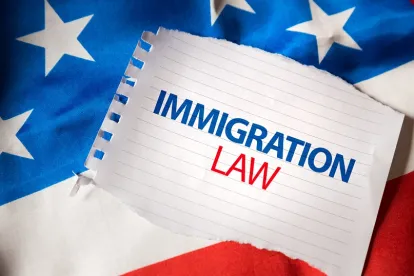The 60-day comment period for the Administration’s new “public charge” rule just closed. There is currently no definition for “public charge” in the rule, but a public charge is understood to be an alien who depends on the government for subsistence, as demonstrated by the receipt of cash assistance for income maintenance or institutionalization for long-term care at the government’s expense. An example of public benefit having this effect is receiving Medicaid while at a nursing home.
The proposed rule actually aims to define public charge and to expand the public benefits that would render an alien a public charge. But even before public comments have been reviewed, the effects of the changes are apparent and controversial. The City of Baltimore is the first to file a lawsuit contesting the new delineation. Baltimore is not challenging the proposed rule itself, since it has not yet been finalized. It is instead challenging changes that already have been made in the State Department’s Foreign Affairs Manual (“FAM”). These are the instructions that Consular officials use at Consulates and Embassies abroad when granting non-immigrant visas and immigrant visas, the latter of which is also known as “green cards.” Baltimore has requested the FAM changes be rescinded as being “arbitrary and capricious, procedurally infirm, and unconstitutional.”
Immigrant rights advocates have noted that under the revised FAM instructions, which go so far as to assess a sponsor’s use of public benefits, it may be more difficult for potential immigrants to overcome a public charge determination. Baltimore alleges that “the change in the State Department’s manual, along with [President Donald] Trump’s rhetoric, has already affected the city’s immigrant community” and that immigrants have been “chilled” from applying for benefits. The City notes particularly that in “the past few months, enrollment in Head Start early education programs by African immigrants has ‘virtually ceased.’” Indeed, a study presented at the American Public Health Association’s 2018 Annual Meeting and Expo showed that since Trump’s initial announcement on changes in the public charge determination, participation in the federal Supplemental Nutrition Assistance Program (SNAP, formerly known as “food stamps”) has declined by about 10% among immigrants who have been in the U.S. for less than five years.
California community clinics and agencies serving children reportedly are noticing that since the new rule was announced, immigrant parents are taking their children out of health and nutrition programs or not enrolling them at all out of fear that participation could affect their immigration status. In addition, physicians in Illinois have reported that immigrant parents are afraid to enroll in government-sponsored health insurance programs for their children for fear of jeopardizing their own status. The proposed new rule states that the use of benefits by U.S. citizen children of immigrants should not be held against the parents. But immigrant parents are afraid and confused about how that would play out. Immigrant advocates believe the new rule will end up costing the U.S. taxpayer more because the refusal of treatment and services ultimately means preventable problems will turn into larger health problems that will require more costly treatments.
New York Governor Andrew Cuomo has threatened to sue the Trump Administration if the new public charge rule is finalized primarily on account of the negative impact on health care. Other cities and states may join Baltimore in its current litigation. Meanwhile, 100 business executives have submitted a public comment highlighting the wide-ranging effect on the growth of their businesses. Dave Gilboa, CEO of Warby Parker, told the Wall Street Journal that “[i]mposing these excessive and nonsensical boundaries on individuals seeking temporary visas and green cards would drastically narrow the opportunity for brilliant talent to come to the U.S.”




 />i
/>i

